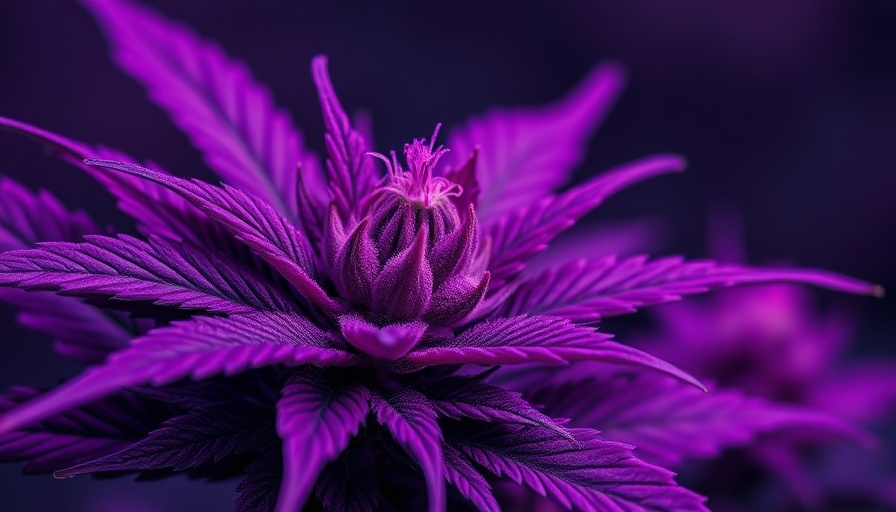
Understanding the Risk: Cannabis Use Disorder Among Older Veterans
A recent study has uncovered a concerning trend in the mental health of older U.S. veterans, specifically high rates of cannabis use disorder (CUD). As more states legalize cannabis for recreational and medicinal purposes, it is essential to acknowledge the potential risks associated with its use, particularly among the older population. This investigation reveals that nearly 20% of veterans aged 65 and older showed signs of CUD, marking a significant health concern in a demographic that often grapples with complex health challenges.
Why This Matters: The Impacts of Cannabis on Mental Health
Cannabis has been touted for its therapeutic benefits, but the rise in usage among older adults highlights a paradox. While some use cannabis for relief from chronic pain or anxiety, the highly addictive nature of the substance can lead to dependence, particularly in those with pre-existing mental health issues. The study's findings show that older veterans who experienced higher rates of CUD were also more likely to report feelings of depression and anxiety, underscoring the need for comprehensive mental health support for this vulnerable group.
Historical Context: The Evolving Perception of Cannabis
Historically, cannabis has experienced a tumultuous relationship with societal acceptance and legality. In recent decades, there has been a shift from criminalization to legalization for medicinal use, particularly among older adults seeking alternatives to traditional pharmaceuticals. However, with this shift comes an important realization: increased access can blur the lines between medicinal use and recreational dependence. Many veterans turn to cannabis as a remedy for service-related ailments, but the lack of adequate education around its risks is alarming.
Future Trends: Addressing the Growing Concern
As more states continue to legalize cannabis, understanding CUD in older adults will become increasingly essential. Experts suggest the need for tailored interventions that cater specifically to veterans’ unique experiences, including counseling services and educational programs on the safe use of cannabis. Moreover, recognizing the social stigmas associated with older adults using cannabis is crucial for creating a supportive environment that addresses their mental health needs.
Personal Stories: Veterans Share Their Experiences
Connecting with those impacted by CUD can provide powerful insights. Veterans like John, 67, who initially turned to cannabis for pain management after a knee injury, found himself struggling with dependence that crept up unexpectedly. “I thought it was helping my pain, but then I realized it was affecting my mood and my relationships,” he shared. His story is just one of many, highlighting the complex interplay between physical relief and mental health impacts.
Taking Action: How To Support Yourself and Others
If you or someone you know is navigating cannabis use, consider these actionable steps:
- Stay Informed: Understand the risks associated with cannabis use, especially if there are existing mental health concerns.
- Seek Support: Engage in community resources that focus on veterans’ health, where discussions about cannabis can occur in a safe space.
- Consult Professionals: Work with healthcare providers to develop a comprehensive plan that encompasses both physical and mental health needs.
Conclusion: The Path Forward
As the conversation surrounding cannabis broadens, particularly concerning older veterans, it is vital to approach this issue with nuance and sensitivity. Understanding the implications of cannabis use disorder is not only a matter of public health; it emphasizes the need for community and support systems to help veterans lead healthier, more fulfilling lives. Empowering themselves with knowledge and proper resources can significantly change the trajectory for those struggling with CUD.
 Add Row
Add Row  Add
Add 




Write A Comment